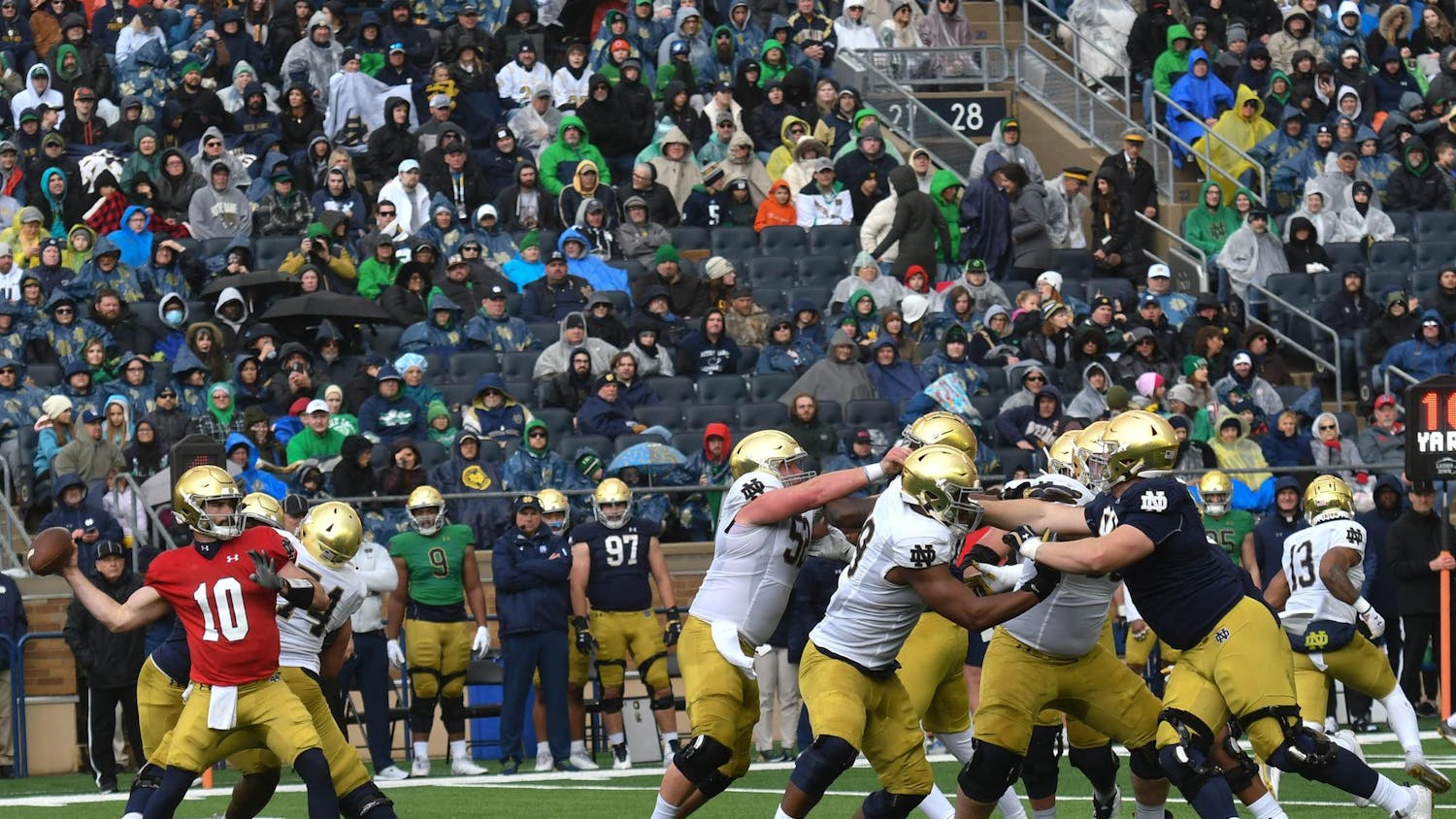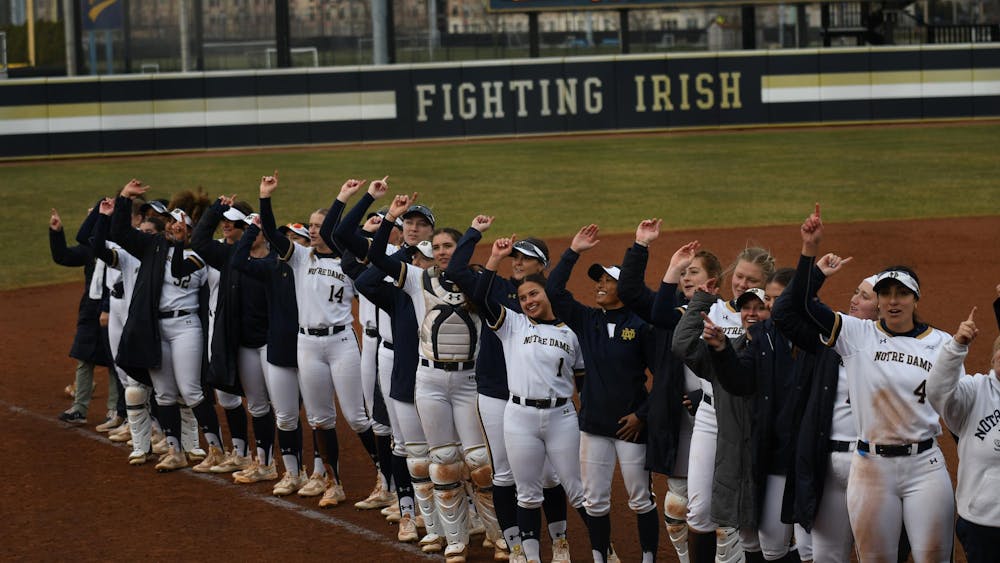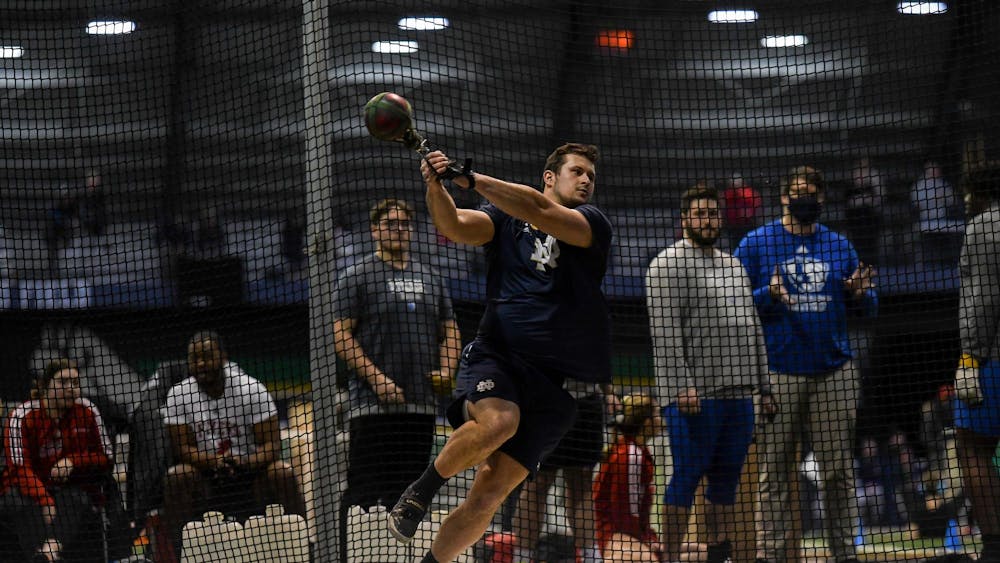I just started my junior year at Notre Dame, yet the NHL is trying to take me back to seventh grade.
Here we are in 2012, just eight years removed from the last NHL work stoppage that eliminated the 2004-2005 season, and another lockout seems imminent.

On Sept. 15, the NHL collective bargaining agreement (CBA) will expire. Negotiations for a new deal don't seem to be close, at least if you are to believe the owners and the player's union.
The lockout made sense when it happened eight years ago. The league was struggling financially. There was no salary cap in place, and the owners stressed the NHL needed a cap.
The lockout hurt the league badly in the short-term. Besides the obvious cost of a full season of play being canceled, a portion of the casual fan base did not return when the NHL did resume, and a television deal with ESPN was gone.
But over time, the NHL benefited. The league had a major increase in revenues. The canceled season also allowed the NHL to examine its gameplay. New rules such as the shootout (which I despise, but many fans love), less grabbing of players in the offensive zone and delayed offsides increased scoring, pace of play, excitement and, most importantly, ticket sales.
Television ratings for playoff games - if not the Stanley Cup Final this past year - are rising, and according to Pierre LeBrun of ESPN.com, the NHL generated $3.3 billion in revenues last year. It took some time, but the NHL is in much better shape than it was eight years ago, and a large reason for that was because of the changes made during the lockout.
And the success since the lockout also explains why another long lockout could be catastrophic. Most fans could be fine with one missed season, especially if it quite possibly saved the future of the league. They will not be as willing this time. Not based on the recent revenue numbers. Shame on you if you fool me once, shame on me if you fool me twice.

Of course, though the league as a whole is stable, many individual franchises are not. This leads to where most of the disagreement is coming from: how to keep those teams in the red afloat.
In extremely basic terms, the owners want to do this by both reducing the players' share of hockey related revenue (HRR) and redefining what exactly HRR is in their favor, while the players want an increase in revenue sharing between teams. For example, a very profitable franchise like Toronto (or a better way to look at it, Toronto's owners) would give some of its profits to help out Phoenix. This has been extremely useful in the NFL and MLB to help those leagues flourish.
I just want hockey, like most fans.
If a deal's not done, it will hurt both owners and players down the road. Seeing a group of millionaires arguing with billionaires over who gets a bigger piece of the pie for the second time in less than a decade will alienate even the biggest fans. They won't care the reasoning and they won't care which side is "right" and which is "wrong".
And this time, many of them will stay gone. If that happens, needless to say, business will suffer, and all that bargaining will have been for naught, when revenue for owners - and thus salaries for players - suffers.
I would like to think NHL commissioner Gary Bettman and the player's association leader Donald Fehr realize this, and will each give a little. But then again, both were part of two of the most notorious work stoppages in American sports history - Bettman the aforementioned NHL lockout and Fehr the MLB strike in 1994.
Ultimately, I expect a lockout, but not a long one, and only a few games canceled, similar to the NBA's this past year. Though the NHL and NHLPA appear far off, they are still much closer than when negotiations started on a new CBA in 2004. This is good news.
Plus, both the players and owners understand the damage an entirely canceled season could cause ... right?












